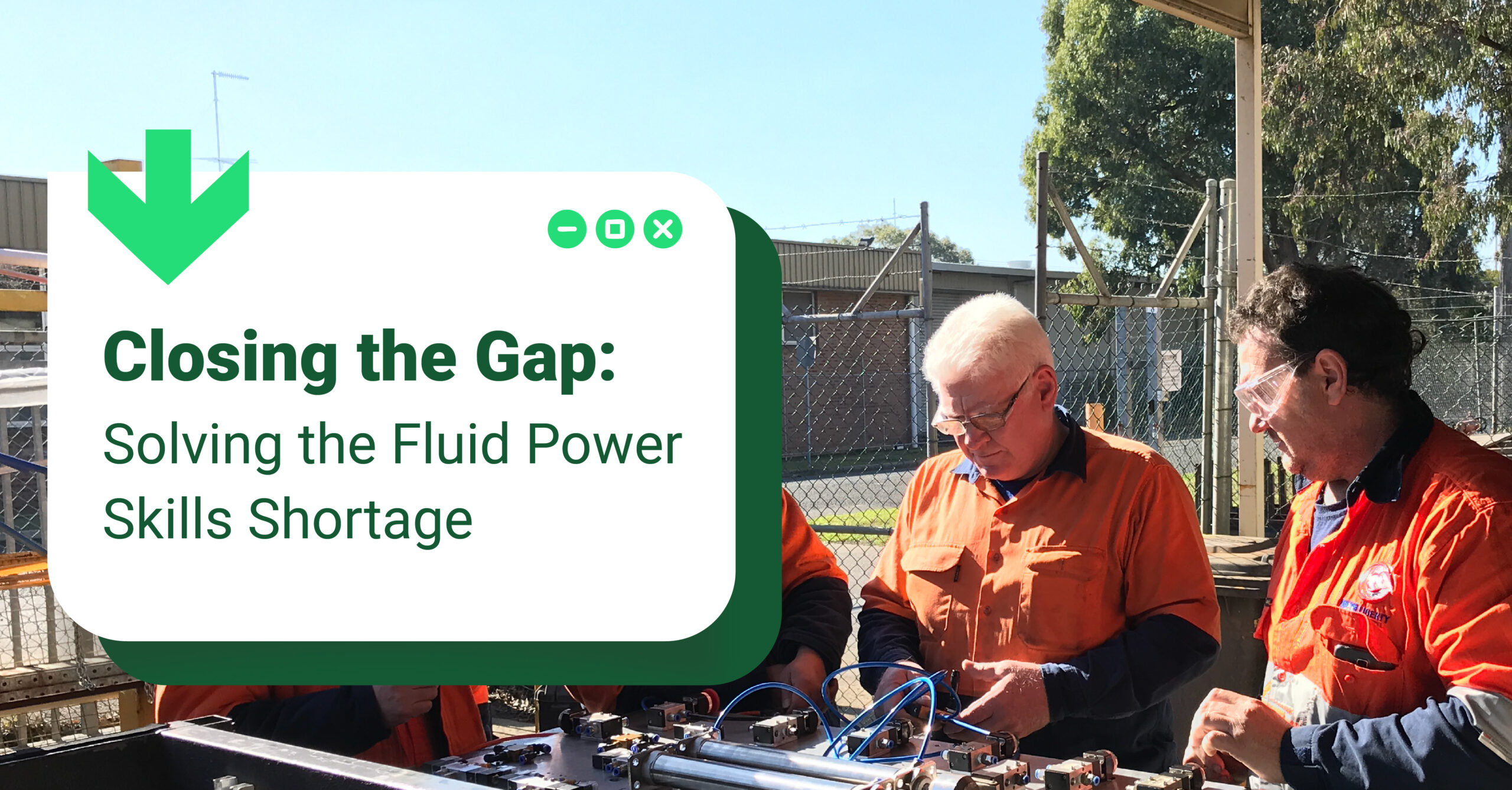
Why it’s time to train for the gear you’re actually working on
The fluid power industry is changing fast. Smarter systems, stricter safety standards, and more advanced technology mean that what you learned 10 years ago might not cut it today.
The skills shortage isn’t just a stat, it’s something we see on worksites every week. Machines are getting more complex. The faults are harder to find. And many experienced tradies are being thrown into the deep end without the right support.
So how do we keep up? By making sure our skills evolve with the systems.
For Tradies: Upskilling = Better Jobs, Safer Work, More Confidence
If you’re a qualified fitter, mechanic, electrician, or operator, you already know the basics. But the industry isn’t standing still and neither should you.
Let’s say you trained on open-centre systems in ag gear. Today, you’re expected to fault-find smart hydraulic circuits in battery-powered plant. That’s not a minor upgrade, it’s a whole new language.
Upskilling gives you the confidence to:
- Step into more advanced, higher-paying roles
- Work safely on today’s machines without guesswork
- Stay employable across multiple industries
- Move into specialist or supervisory positions
Learning new skills doesn’t mean starting over. It means building on what you’ve already got and making it future-ready.
For Employers: The Best Sites Have the Best Skills On the Ground
We get it. Taking a good worker off the floor to send them to training feels like a short-term hit. But the long-term risk of doing nothing is bigger.
A worker who’s out of their depth with new tech is a risk to your deadlines, your safety record, and your bottom line.
The businesses who back their people with proper training:
- See fewer breakdowns and better maintenance
- Build a stronger internal talent pipeline
- Spend less on call-outs and rework
- Keep their best workers for longer
And here’s the kicker: when you invest in people, they don’t just stay, they lift the whole team.
Cross-Skilling Makes Teams More Flexible
Skills shortages don’t just affect hydraulics. They hit wherever your site has gaps: mechanical, electrical, fitting, diagnostics.
That’s where cross-skilling comes in.
We’re seeing more and more tradies add a second skillset: an auto tech picking up hydraulics, a boilermaker learning fault-finding, an operator stepping into maintenance. These people are adaptable, reliable, and always in demand.
If you’re an employer, one cross-skilled worker can fill the gaps of two. And that’s gold on a project site.
Why Apprenticeships Still Work Even For Qualified Tradies
Here’s something most employers don’t realise: a tradesperson can do more than one apprenticeship as long as each one leads to a different qualification.
So if you’ve got a top-performing worker who’s keen to grow, why not offer a second trade pathway? Apprenticeships are structured, practical, and supported and they’re one of the fastest ways to fill skills gaps on site.
It’s also a great way to retain motivated staff and keep knowledge in-house.
The Industry Moves Together Or It Doesn’t Move at All
There’s a mindset that says: “If I train them, they’ll leave.” But here’s the reality, if we don’t train them, they’ll leave the industry altogether.
When more companies invest in skills, the whole workforce gets stronger. You get better contractors, safer sites, and more confident teams and your business stands out as a place where people want to work.
How APT Is Helping
At APT, we’ve trained over 7,000 people across mining, construction, agriculture, and manufacturing. From mobile trailers on remote sites to simulation rigs in our workshops, our programs are built for the real world, not the classroom.
We focus on:
- Hands-on, workplace-ready skills
- Blended delivery that works around rosters
- Practical outcomes, not just paperwork
We work with industry leaders like BHP, Glencore, Komatsu, and Caterpillar. And we’re here to help you whether you’re an individual wanting to move up, or an employer looking to future-proof your crew.
Contact our team today to find out how APT can help you and your crew